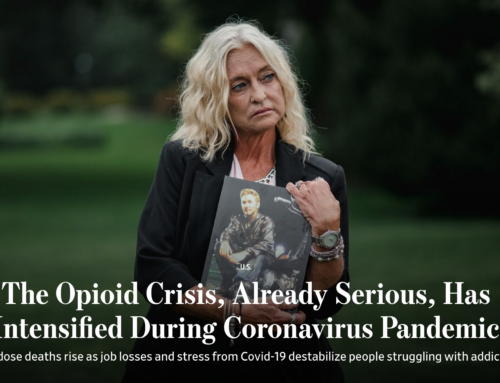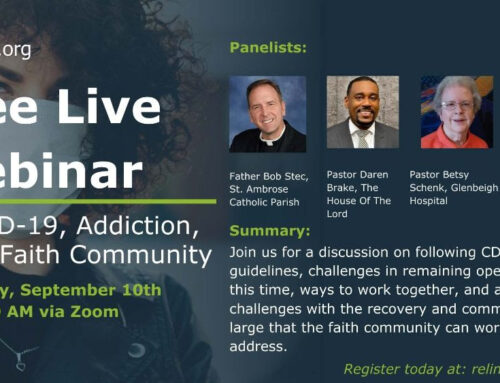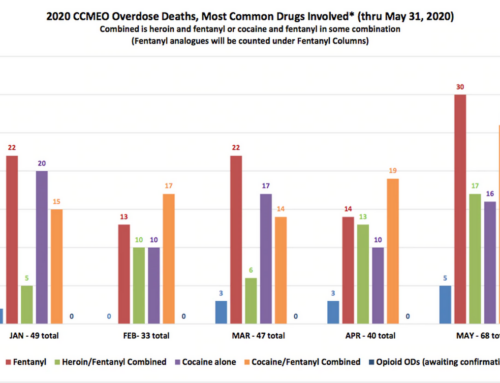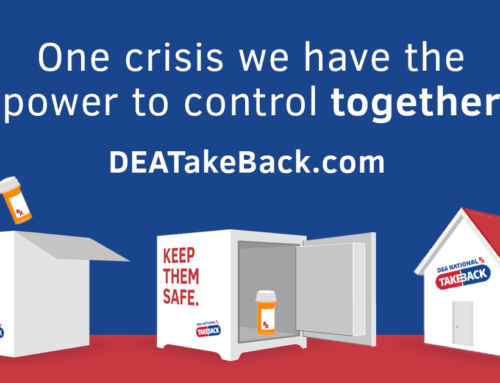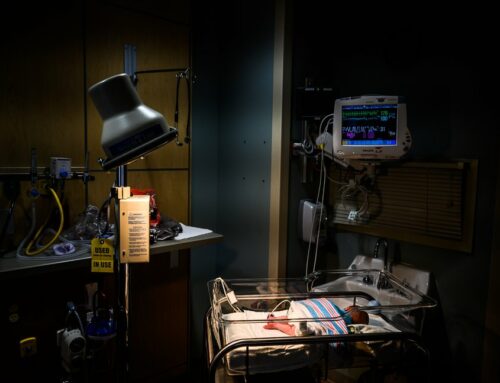Many communities and organizations are partnering with law enforcement agencies for National Drug Take Back Day, 10 a.m. to 2 p.m. April 28. The goal is to help reduce the amount of unneeded, unused and expired prescription drugs that often are found in homes. The program offers a way to properly dispose of these unwanted medications and to help prevent them from getting into the wrong hands.
Greater than Heroin, a resource center spearheaded by Father Bob Stec, pastor of St. Ambrose Parish in Brunswick, is one of the organizations collaborating on the initiative. Visit GreaterthanHeroin.com or click HERE for a link to local collection sites.
Statistics show that addiction is at epidemic levels and it impacts every facet of society. Three out of four heroin addicts started with prescription opioids, so reducing the amount of these substances is one way to fight the problem.
![]() Although opioid abuse is the most critical problem – it’s at record-high levels — it isn’t the only issue being targeted. Greater than Heroin’s resources also can be helpful to those struggling with other substance abuses.
Although opioid abuse is the most critical problem – it’s at record-high levels — it isn’t the only issue being targeted. Greater than Heroin’s resources also can be helpful to those struggling with other substance abuses.
“The crisis rages on,” Father Stec said. “Over the past several months, a leadership team for Greater than Heroin has been working to identify and outline a collaborative plan to move our efforts forward to put an end to this epidemic.”
 With that in mind, he organized a forum on April 19 at Landerhaven to work on a plan to create greater awareness of and support for the crisis in this region. The national Drug Take Back Day is part of the group’s plan.
With that in mind, he organized a forum on April 19 at Landerhaven to work on a plan to create greater awareness of and support for the crisis in this region. The national Drug Take Back Day is part of the group’s plan.
The April 19 forum was attended by law enforcement agencies, city officials, members of the business and medical communities, representatives of schools and social service agencies and other stakeholders from across the region. They spent nearly three hours brainstorming and gathering information to help in the ongoing fight against addiction.
“In 2017, the state of Ohio lost 4,329 people to heroin/opiate-related overdoses, a dramatic increase from the prior year when 3,945 died. It’s a clear and painful reminder that we have a crisis raging out of control which is ravaging every corner of our state and impacting every community and neighborhood,” Father Stec said.
 “It’s going to take all of us working together to create the awareness and understanding to put an end to these senseless deaths and the pain and suffering they bring to family, friends, co-workers and loved ones. Together we are Greater than Heroin, but it really is going to take all of us working together,” he said.
“It’s going to take all of us working together to create the awareness and understanding to put an end to these senseless deaths and the pain and suffering they bring to family, friends, co-workers and loved ones. Together we are Greater than Heroin, but it really is going to take all of us working together,” he said.
Forum attendees received a resource packet with announcements that can be used in church bulletins, on websites and in newsletters. There also was information about CrimeStoppers and the GreaterthanHeroin.com website, which offers a one-stop shop of resources, information and programs to provide help and hope for those struggling with addiction.
Greater than Heroin is working with CrimeStoppers to explore implementation of an anonymous tip line where someone could text information about a drug abuse situation. They also are working with Catholic Charities, which offers a variety of substance abuse programs. Starttalking.ohio.gov is another website that helps families start the conversation about the dangers of drug use with kids and teenagers. One high school senior at the event mentioned that he knows of several students who are addicted to electronic cigarettes, a growing problem.
 According to the Centers for Disease Control, everyone can help stop prescription opioid overdose, but it relies on individuals plus partnerships with state and local agencies and organizations across the country to share the messages and resources – which is the goal of Greater than Heroin.
According to the Centers for Disease Control, everyone can help stop prescription opioid overdose, but it relies on individuals plus partnerships with state and local agencies and organizations across the country to share the messages and resources – which is the goal of Greater than Heroin.
“We need to break the silence,” Father Stec said, adding that many people keep their struggle and/or pain to themselves out of fear or shame.
He asked forum attendees to think about their audience and develop three talking points, which were shared with the group. Marcus Thomas, a Cleveland-based advertising agency, is working with Greater than Heroin to crystallize the talking points so those who go into the community to speak about the issue are all on the same page, Father Stec said.
A representative of Ohio Gov. John Kasich’s office said it’s important to identify and engage community partners on all possible fronts to talk about the drug problem and ways to address it. He said addiction causes an estimated $80 billion in loss of productivity, accidents, health care and other costs to the business community. To combat this, Lake County is working through its ADAMHS board, something that could be replicated elsewhere.
 “If we can agree on three talking points and we all were involved, the impact would be staggering. We have to start talking and keep talking with a memorable and repeatable message,” Father Stec said.
“If we can agree on three talking points and we all were involved, the impact would be staggering. We have to start talking and keep talking with a memorable and repeatable message,” Father Stec said.
Drug-free clubs in high schools, business-community awareness, hosting first-responder luncheons and participation in the Drug Take Back Day on April 28 are some of the ways community partners can help in the battle against addiction.
“Be the change,” Father Stec said.
Bishop Nelson Perez and other community leaders have recorded brief supportive videos that can be viewed on the Greater than Heroin website.
“Working together, we can bring help and hope to our region,” Father Stec said.

